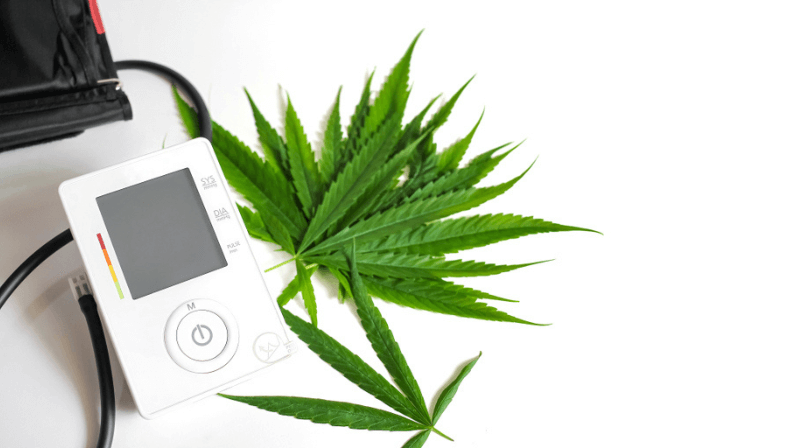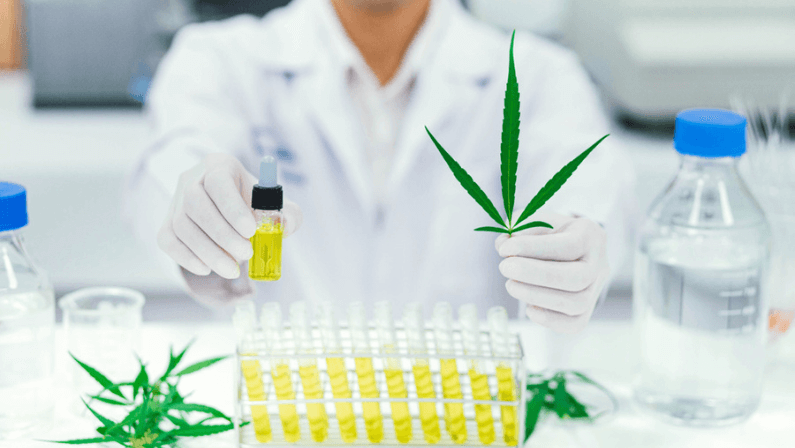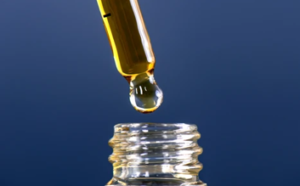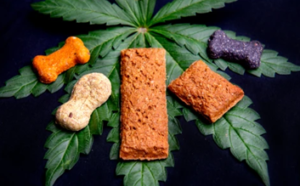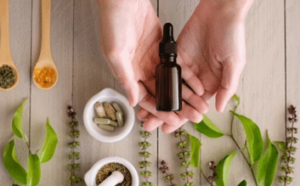With the rising popularity of CBD products, many are curious about its potential to lower blood pressure. Amidst the buzz, questions arise about its efficacy, safety, and suitability for managing high blood pressure. Let’s talk about the science behind CBD and its impact on blood pressure, addressing common concerns along the way.
Can CBD help lower blood pressure?
Does CBD lower blood pressure? Research on the effects of CBD on blood pressure is ongoing, with some studies suggesting that it may have a positive influence on hypertension. CBD interacts with the endocannabinoid system, which plays a role in regulating various bodily functions, including blood pressure. While initial findings are promising, more extensive research is needed to draw definitive conclusions.
Is CBD safe to use for high blood pressure?
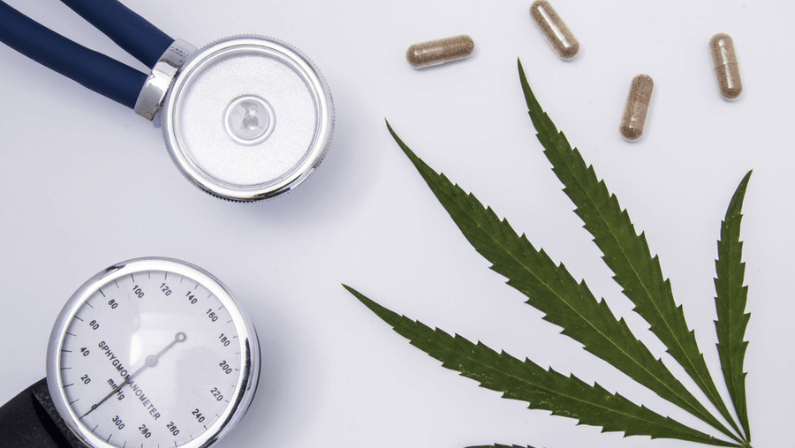
CBD is generally considered safe for most people, but it’s essential to consult with a healthcare professional before using it, especially if you have existing medical conditions or are taking medications. Additionally, dosage and method of consumption can impact its safety and effectiveness.
Side Effects and Risks of Using CBD for High Blood Pressure
While CBD is well-tolerated by many, some individuals may experience side effects such as fatigue, diarrhea, or changes in appetite. Moreover, CBD may interact with certain medications, potentially affecting their efficacy or side effects. It’s crucial to be aware of these risks and discuss them with a healthcare provider.
Who to Speak With About CBD for Blood Pressure
If you’re considering using CBD for high blood pressure, consult with a healthcare professional who can provide personalized advice based on your medical history and current medications. They can help you understand potential risks and benefits and determine the most appropriate treatment plan for your needs.
What type of CBD is best for blood pressure?
When choosing CBD products, opt for those that are reputable and transparent about their ingredients and manufacturing processes. Look for products with a certificate of analysis (COA) to ensure quality and potency.
Atmos CBD’s product line includes a variety of options to suit different preferences and needs. From CBD tinctures and capsules to topicals and edibles, the brand offers a diverse selection of formulations for users to incorporate into their wellness routines. Each product is carefully crafted using high-quality ingredients and undergoes rigorous testing to ensure potency, purity, and safety.
What to Keep in Mind as You Shop for CBD Products
When considering purchasing CBD products, it’s crucial to be well-informed and discerning to ensure you’re selecting safe and effective options.
Here are some key factors to consider:
Certificate of Analysis (COA)
Before purchasing any CBD product, always check for a Certificate of Analysis (COA). This document provides detailed information about the product’s chemical composition, including its cannabinoid content and potential contaminants like heavy metals, pesticides, and residual solvents.
A reputable CBD company will conduct third-party testing and make COAs readily available to consumers. By reviewing the COA, you can verify the product’s potency and purity, ensuring it meets your standards for quality and safety.
FDA Warning Letters and Lawsuits
Stay informed about any FDA warning letters or legal actions directed toward specific CBD brands. The FDA issues warning letters to companies that violate regulations or make unsubstantiated health claims about their products.
Additionally, lawsuits may arise due to product mislabeling, contamination, or other issues that compromise consumer safety. Researching a brand’s history of FDA interactions can help you avoid products with potential legal or safety concerns.
Customer Feedback
One of the most valuable resources for evaluating CBD products is customer feedback and reviews. Take the time to research and read reviews from other users who have tried the product. Pay attention to their experiences, both positive and negative, as they can offer insights into factors like effectiveness, taste, and customer service. However, be discerning and consider multiple sources of feedback to ensure a balanced perspective.
Transparency
Transparency is paramount when choosing CBD brands. Look for companies that are forthcoming about their sourcing practices, extraction methods, and quality control measures. Transparent brands will often provide detailed information about where they source their hemp, how their CBD is extracted, and the steps they take to ensure product quality and consistency.
By choosing transparent brands, you can have confidence in the integrity of the products you’re purchasing and trust that they meet high standards of quality and safety.
How to Find Quality CBD Products
When searching for quality CBD products for blood pressure, it’s essential to consider several key factors that can influence their safety, efficacy, and overall quality.
Here’s a closer look at some important considerations:
Independent Third-Party Lab Testing
One of the most critical indicators of a quality CBD product is independent third-party lab testing. Reputable CBD companies, such as Atmos CBD, will regularly test their products through accredited laboratories to verify their potency, purity, and safety.
These tests assess various aspects of the product, including cannabinoid content, terpene profile, and the presence of contaminants such as pesticides, heavy metals, and residual solvents. By reviewing the lab reports, consumers can gain confidence in the product’s authenticity and ensure that it meets their standards for quality and safety.
Extraction Method
The extraction method used to extract CBD from hemp plants can significantly impact the quality and potency of the final product. Look for CBD products that are extracted using clean and efficient methods such as CO2 or ethanol extraction.
These methods are known for their ability to produce high-quality CBD extracts while minimizing the risk of contamination with harmful chemicals or solvents. CO2 extraction, in particular, is considered one of the gold standards in the industry for its ability to preserve the integrity of cannabinoids and terpenes, resulting in a more potent and effective product.
Where It Was Grown
The source of the hemp used to produce CBD products is another crucial consideration when assessing quality. Opt for CBD sourced from organic hemp farms that adhere to sustainable and environmentally friendly farming practices.
Organic hemp is grown without the use of synthetic pesticides, herbicides, or fertilizers, reducing the risk of exposure to harmful chemicals and contaminants. By choosing products made from organically grown hemp, consumers can enjoy CBD products that are free from potentially harmful residues and contribute to sustainable agricultural practices.
THC Content
In addition to CBD content, it’s essential to consider the THC content of CBD products, especially if you want to avoid psychoactive effects. In the United States, CBD products derived from hemp must contain less than 0.3% THC to comply with federal regulations and be considered legal.
Be sure to check the product’s Certificate of Analysis (COA) to verify its THC content and ensure that it meets legal requirements. Choosing CBD products with low THC levels can provide peace of mind and allow consumers to enjoy the therapeutic benefits of CBD without the risk of intoxication or impairment.
What are some alternative treatments for high blood pressure?
While medications are often prescribed to manage high blood pressure, many individuals also explore alternative treatments and lifestyle modifications to help lower their blood pressure naturally.
Here are some alternative approaches worth considering:
Exercising Regularly
Regular physical activity is one of the most effective ways to lower blood pressure. Engage in aerobic exercises such as walking, jogging, swimming, or cycling, which help strengthen the heart and improve circulation.
Additionally, incorporate strength training exercises to build muscle mass and boost metabolism. Practices like yoga and tai chi can also be beneficial, as they promote relaxation, flexibility, and stress reduction, all of which contribute to better blood pressure control.
Learning to Deal With Stress
Chronic stress can significantly impact blood pressure levels, so it’s essential to incorporate stress management techniques into your daily routine. Practice relaxation techniques such as meditation, deep breathing exercises, progressive muscle relaxation, or guided imagery to promote a sense of calm and reduce stress levels.
Mindfulness-based stress reduction programs and cognitive-behavioral therapy can also help individuals develop healthier coping mechanisms and improve their overall well-being.
Maintaining a Moderate Weight
Maintaining a healthy weight is crucial for managing high blood pressure and reducing the risk of cardiovascular disease. Focus on achieving and maintaining a moderate weight through a balanced diet and regular physical activity. Incorporate nutrient-rich foods such as fruits, vegetables, whole grains, lean proteins, and healthy fats into your diet while limiting the consumption of processed foods, sugary beverages, and high-fat foods.
Aim for gradual, sustainable weight loss if needed, and consult with a healthcare professional or registered dietitian for personalized guidance and support.
Eating Dark Chocolate
Dark chocolate, particularly varieties with high cocoa content, contains flavonoids that have been shown to have beneficial effects on cardiovascular health. Flavonoids help improve blood flow, reduce inflammation, and lower blood pressure levels.
Enjoying small amounts of dark chocolate in moderation can be a tasty way to support heart health. However, be mindful of portion sizes and choose dark chocolate with minimal added sugars and fats for the most significant health benefits.
Reducing Sodium Intake
High sodium intake is strongly associated with elevated blood pressure levels and an increased risk of hypertension and cardiovascular disease. Limiting salt intake and opting for low-sodium foods can help control blood pressure levels and improve overall heart health. Be vigilant about reading food labels and choosing products that are lower in sodium.
Cook meals at home using fresh ingredients and herbs and spices to add flavor without relying on salt. Additionally, avoid processed and packaged foods, which tend to be high in sodium, and opt for whole, minimally processed foods whenever possible.
Frequently Asked Questions About CBD for High Blood Pressure
As interest in CBD’s potential health benefits grows, so does the curiosity about its effectiveness in managing high blood pressure. Here are some frequently asked questions about CBD and its relationship to blood pressure:
What does CBD do to the brain?
CBD interacts with the endocannabinoid system (ECS) in the brain and body, which plays a crucial role in regulating various physiological processes, including mood, pain sensation, appetite, and memory. CBD does not bind directly to cannabinoid receptors like THC but instead influences the ECS indirectly by enhancing the effects of endocannabinoids produced naturally by the body.
This interaction may contribute to CBD’s potential therapeutic effects, including its ability to modulate pain perception, reduce inflammation, alleviate anxiety, and promote overall well-being.
Can you get addicted to CBD?
CBD is not considered addictive, and it does not produce the euphoric or psychoactive effects associated with THC, the primary psychoactive compound in cannabis. Unlike THC, CBD does not stimulate the brain’s reward system or produce feelings of intoxication or dependence. Numerous studies and clinical trials have demonstrated that CBD has a favorable safety profile and is generally well-tolerated by most individuals, even at high doses.
However, it’s essential to use CBD responsibly and consult with a healthcare professional before starting any new supplement regimen, especially if you have concerns about substance abuse or addiction.
What is the difference between CBD and THC?
CBD (cannabidiol) and THC (tetrahydrocannabinol) are both cannabinoids found in cannabis plants, but they have distinct chemical structures and effects on the body. THC is the primary psychoactive compound in cannabis, responsible for the “high” or intoxicating effects associated with marijuana use. In contrast, CBD is non-psychoactive and does not produce euphoria or alter consciousness.
While THC binds directly to cannabinoid receptors in the brain, CBD interacts with the endocannabinoid system in a more indirect manner. CBD is legal in many parts of the world, while THC remains illegal in some jurisdictions due to its psychoactive properties.
Can you take CBD for low blood pressure?
While CBD is often associated with potential blood pressure-lowering effects, individuals with already low blood pressure should exercise caution when using CBD products. CBD has been shown to have vasodilatory effects, meaning it can widen blood vessels and potentially cause a further drop in blood pressure, leading to symptoms like dizziness, lightheadedness, or fainting.
If you have concerns about low blood pressure or are currently taking medication to manage hypertension, it’s essential to consult with a healthcare professional before using CBD or making any changes to your treatment plan.
How much CBD must you take to lower blood pressure?
Determining the optimal dosage of CBD to lower blood pressure can be challenging, as individual responses to CBD vary based on factors such as body weight, metabolism, the severity of hypertension, and the form of CBD used (e.g., oil, capsules, edibles). Additionally, limited clinical research is available on CBD’s specific effects on blood pressure regulation, making it difficult to establish standardized dosing guidelines.
It’s recommended to start with a low dose of CBD and gradually increase it until you achieve the desired effects under the guidance of a healthcare professional. Regular monitoring of blood pressure levels is also advisable to assess the effectiveness of CBD therapy and ensure safety.
Understanding CBD’s Capabilities in Blood Pressure Management
So, does CBD help with blood pressure? While CBD shows promise in potentially lowering blood pressure, more research is needed to fully understand its mechanisms and effectiveness. It’s essential to approach CBD use for hypertension cautiously, consulting with healthcare professionals, and selecting quality products from reputable brands. As part of a holistic approach to managing high blood pressure, consider incorporating lifestyle changes and alternative treatments for optimal cardiovascular health.
Atmos CBD stands out as a reputable and trusted provider of CBD products, offering high-quality formulations backed by transparency, education, and sustainability. Whether seeking relief from everyday stressors or looking to support overall wellness, consumers can turn to Atmos with confidence, knowing they are investing in products that prioritize quality and integrity. Contact them today!



